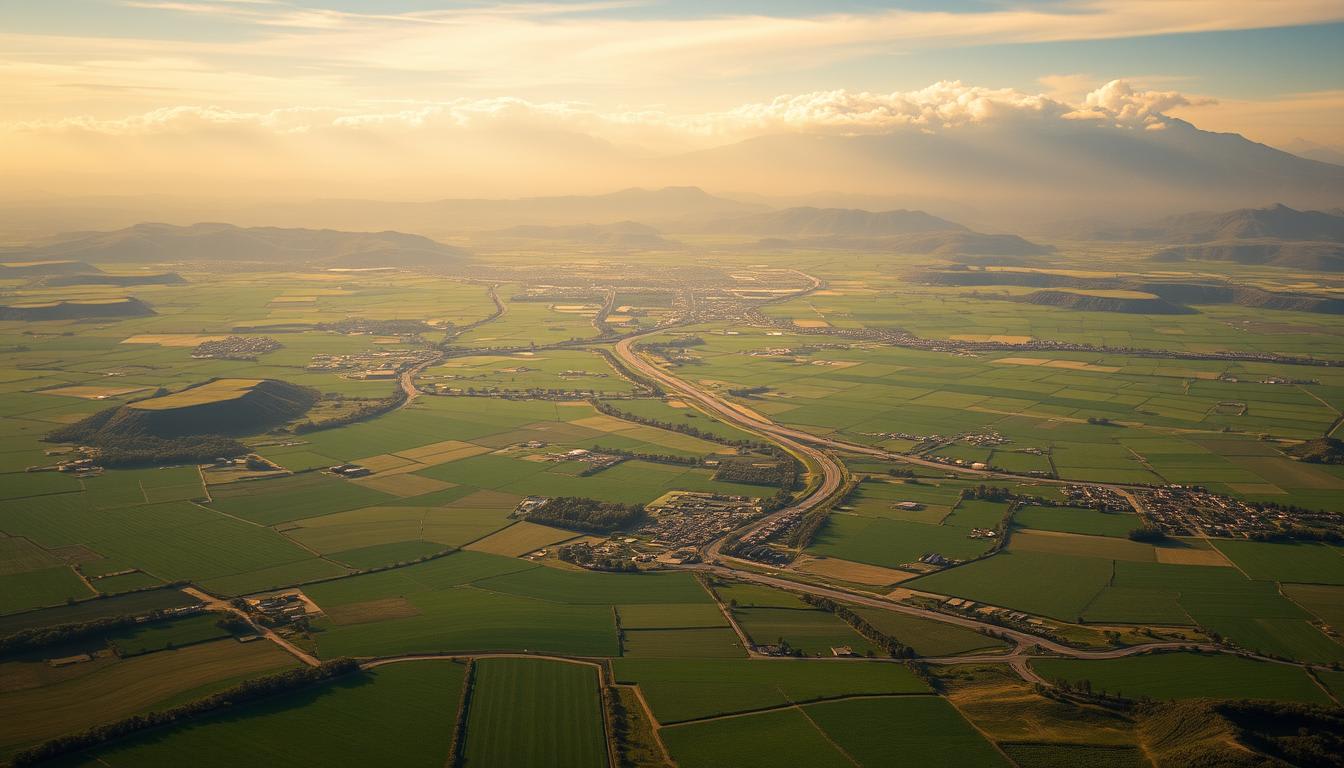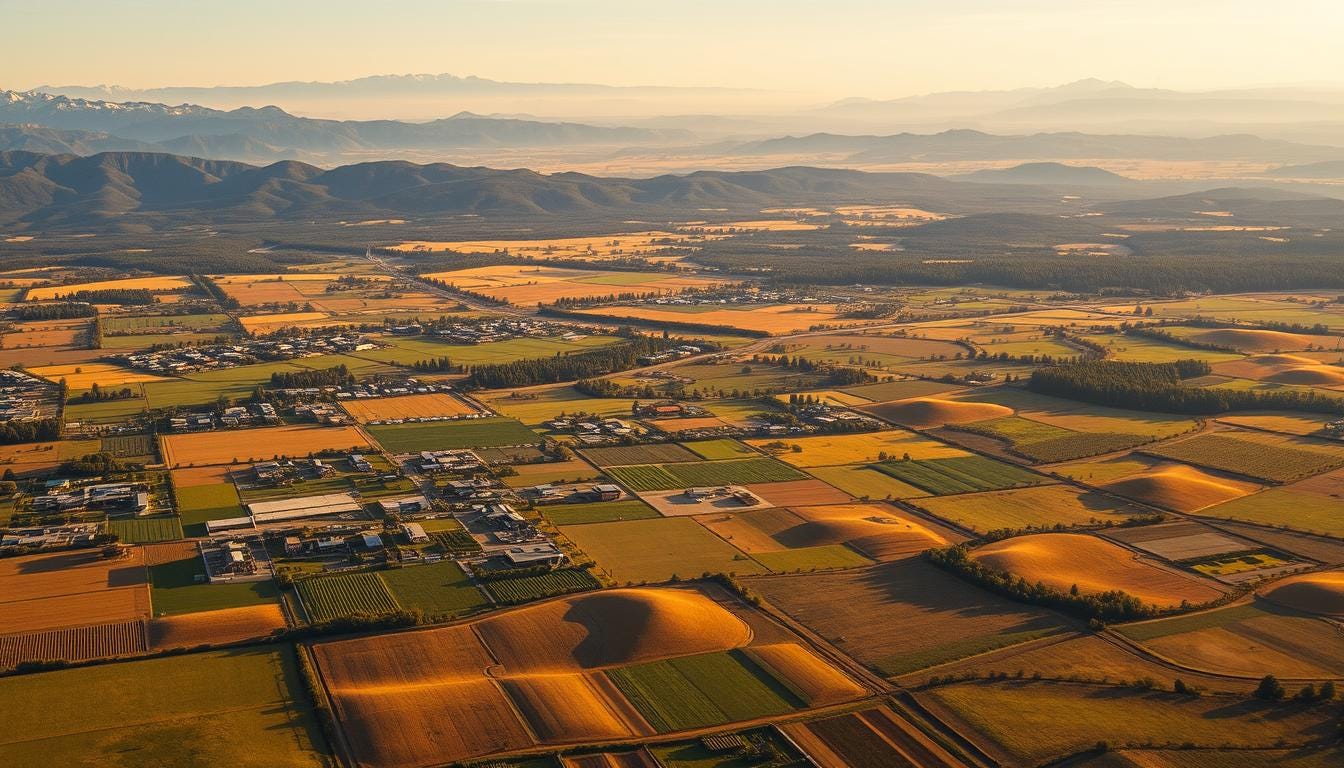How Much Land Does Bill Gates Own in The World
Have you ever wondered what makes Bill Gates, the co-founder of Microsoft, invest heavily in real estate and farmland across the globe? The scale of his land ownership has sparked significant interest and debate.
As one of the wealthiest individuals, Gates has been diversifying his investments, with a notable focus on agricultural land. This has raised questions about the motivations behind his actions and the potential impact on the environment and local communities.
Understanding the extent of his land holdings can provide valuable insights into his strategies for sustainable farming and land use.
Key Takeaways
Bill Gates has invested heavily in farmland across the United States.
His land ownership is part of a broader strategy for sustainable farming.
The scale of his investments has significant implications for the environment.
Gates' approach to land use is influenced by his philanthropic goals.
The impact of his land ownership on local communities is a subject of ongoing debate.
How Much Land Does Bill Gates Own in Africa
Africa has become a significant focus for Bill Gates' land investments. As part of his broader strategy to enhance global food security and promote sustainable agricultural practices, Gates has acquired substantial tracts of land across the continent.
Overview of Bill Gates' Land Holdings in Africa
Gates' land holdings in Africa are diverse, spanning multiple countries and regions. His investments are primarily aimed at promoting sustainable farming practices and improving agricultural productivity.
The countries where Gates has significant land holdings include Zambia, Kenya, and Ethiopia. These investments are part of his efforts to address food security challenges and promote environmental sustainability.
Gates' investments in African agriculture are geared towards promoting sustainable farming practices. This includes the use of advanced irrigation systems, drought-resistant crops, and organic farming techniques.
Improved irrigation systems to enhance water management
Introduction of drought-resistant crop varieties to mitigate climate change impacts
Promotion of organic farming practices to reduce environmental degradation
These initiatives not only improve agricultural productivity but also contribute to environmental sustainability. By adopting sustainable farming practices, Gates' investments in Africa are helping to ensure long-term food security and reduce the environmental footprint of agriculture.
Total Land Owned by Bill Gates in 2024
As we approach 2024, the total land owned by Bill Gates is a subject of significant interest. With his vast investment portfolio, Gates continues to be a major player in the land ownership market.
Global Land Holdings Update
Bill Gates' land holdings have expanded significantly over the years, with investments in various countries. His strategy involves diversifying his portfolio to include farmland, which is seen as a stable and profitable investment.
The latest data indicates that Gates' total land ownership now exceeds 250,000 acres globally. This makes him one of the largest private landowners in the world.
Gates' investment approach to farmland is multifaceted. He focuses on regions with high agricultural productivity and potential for growth. Some key factors in his investment decisions include:
Soil quality and fertility
Water availability and irrigation systems
Market demand for specific crops
Potential for sustainable farming practices
By adopting these strategies, Gates not only generates returns on his investments but also contributes to global food security and sustainable agriculture.
For potential investors looking to follow in Gates' footsteps, understanding these investment strategies can provide valuable insights into the best ways to invest in land as Bill Gates does.
How Much Land Does Bill Gates Own Compared to Other Billionaires
Bill Gates is not the only billionaire with significant land holdings. Other prominent investors, such as Ted Turner and Jeff Bezos, have also invested heavily in real estate and farmland. A comparative analysis of their land ownership provides insight into the scale and scope of their investments.
Land Holdings of Prominent Billionaires
Ted Turner's land holdings, for example, span over 2 million acres in the United States, primarily used for conservation and ranching. In contrast, Bill Gates' farmland investments, as part of his analysis of bill gates farmland investments, are focused on sustainable agriculture and climate change mitigation.
Environmental Impact of Large-Scale Land Ownership
Large-scale land ownership can have both positive and negative environmental impacts. On the one hand, investments in sustainable agriculture and conservation can promote biodiversity and reduce carbon emissions. On the other hand, the displacement of local communities and the concentration of land ownership can have negative social and environmental consequences.



